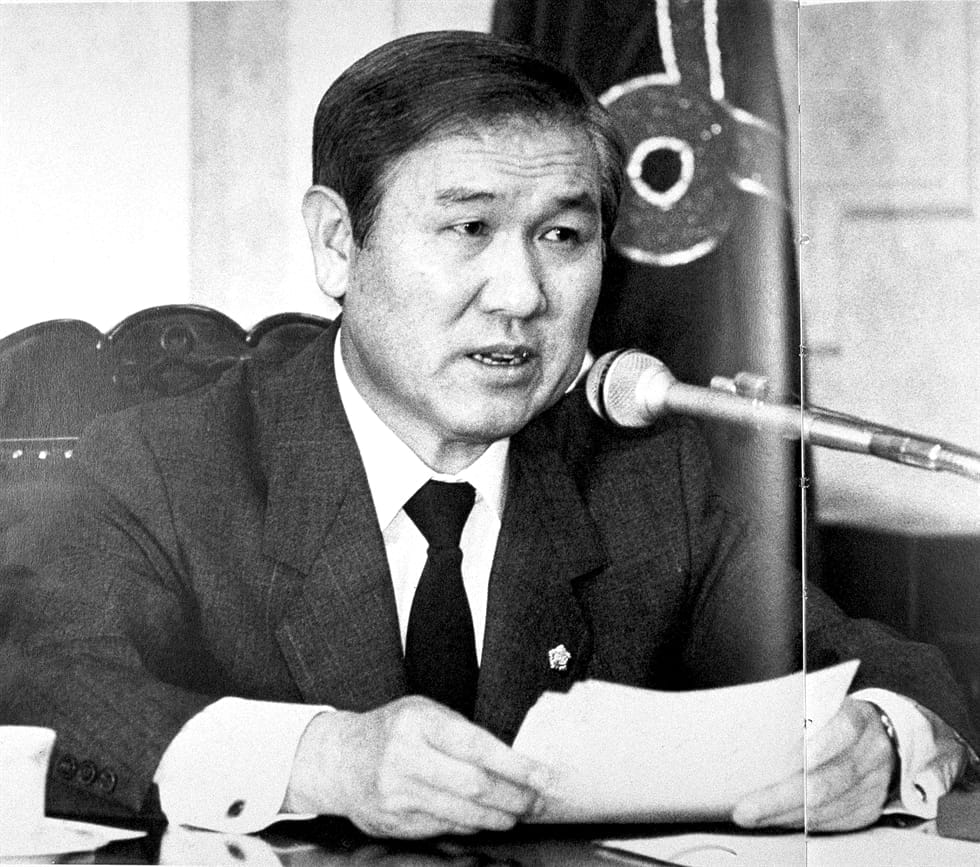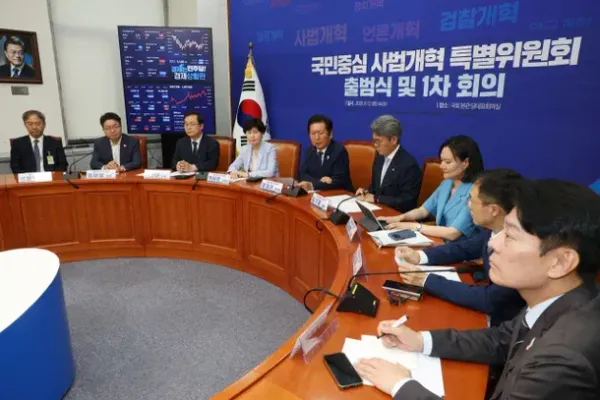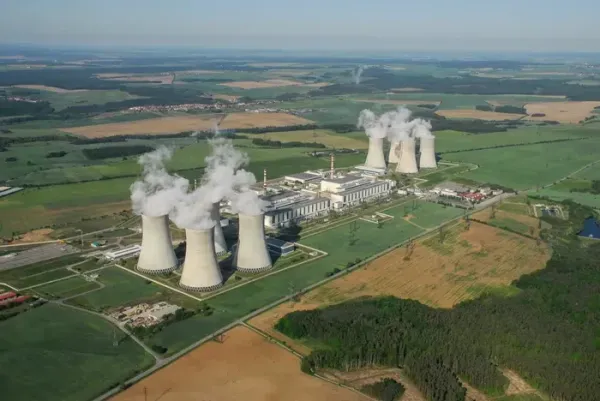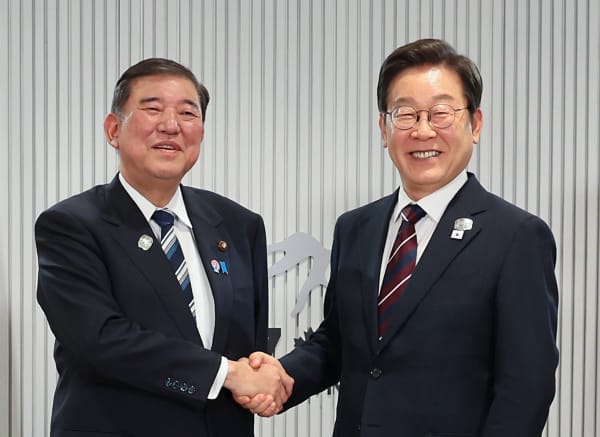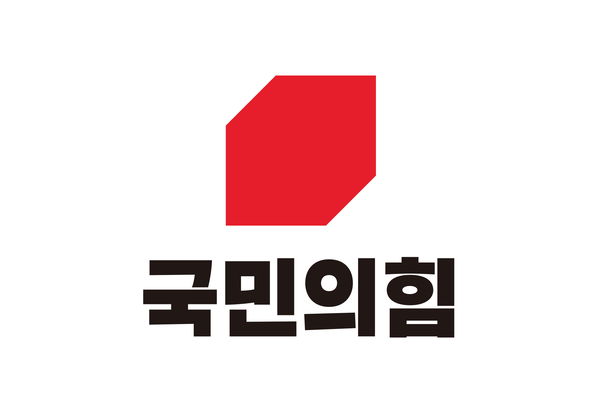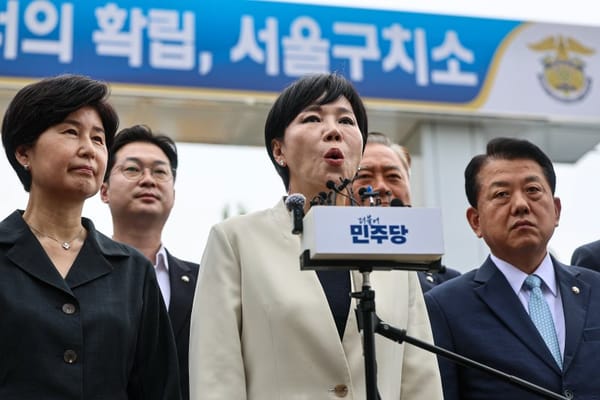Photo: Roh Tae-woo announces the June 29 Declaration. Credit: Korea Democracy Foundation.
June 29, 1987, the day Roh Tae-woo 노태우, the right-hand man of dictator Chun Doo-hwan 전두환 and the head of the nominal ruling party Democratic Justice Party 민주정의당, proposed a constitutional amendment to allow for direct election of presidents, is the date that South Korea officially began its transition to democracy. The amendment was ratified on October 12, and South Korea’s first democratic presidential election was held on December 16 of the same year.
What came to be known as the June 29 Declaration 6.29 선언 was in effect a negotiated surrender on the part of the Chun dictatorship. The nationwide mass protests now known as the June Struggle 6월 항쟁 had made further defense of the dictatorship untenable. By having Roh announce the transition to democracy, the military junta could present him as an agent of change while trusting him to protect them from prosecution. The scheme worked, at least for a time - Roh became South Korea’s first democratically elected president in December 1987, and the military junta avoided prosecution until the succeeding Kim Young-sam 김영삼 administration.
With last week’s anniversary of the June 29 Declaration came calls for President Yoon Suk-yeol 윤석열 to follow suit, drawing an implicit and unflattering comparison to the former dictator. In an op-ed column for Kyunghyang Shinmun 경향신문, former president of Jangan University Kim Tae-il 김태일 전 장안대학교 총장 observed that Yoon now finds himself in a “catastrophic equilibrium,” caught between an intolerable three years remaining in his term, and a potential impeachment whose outcome could be even more intolerable.
Kim’s prescription for Yoon: a negotiated surrender, akin to Chun’s, by means of a constitutional amendment that would shorten Yoon’s term. Although Kim did not specify what Yoon could ask for in return, many South Korean liberals advocate shortening the presidential term to four years, with the possibility of a second term if re-elected.


